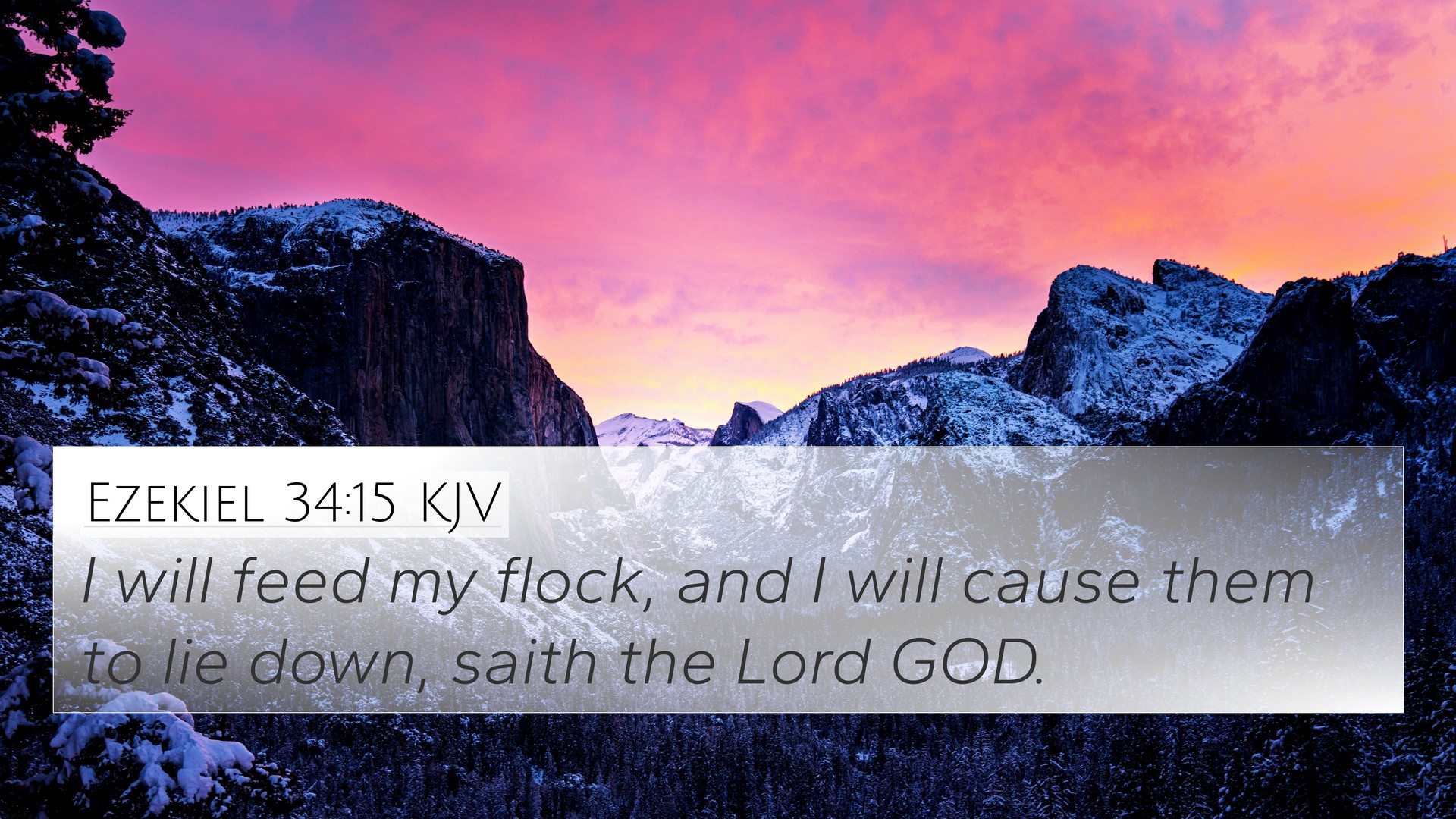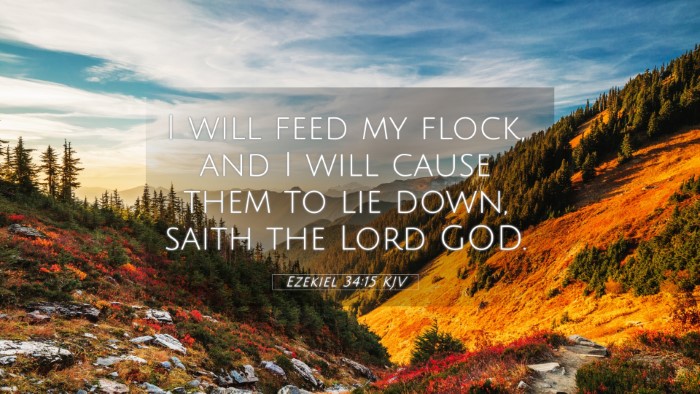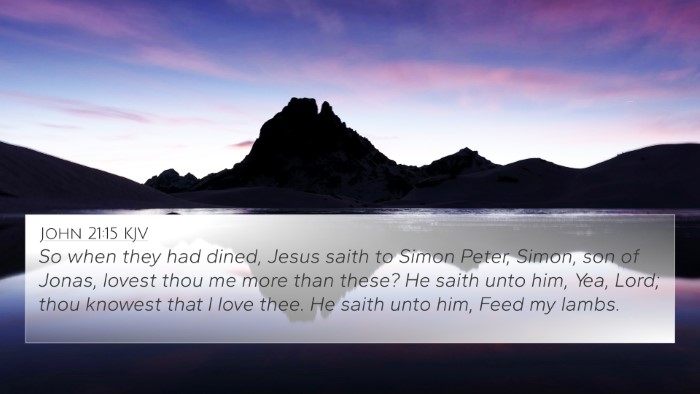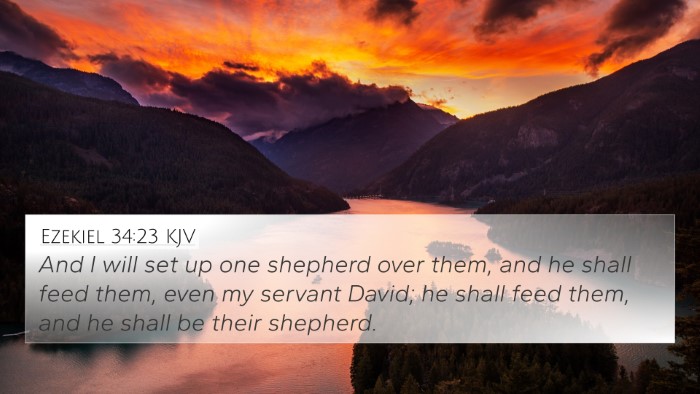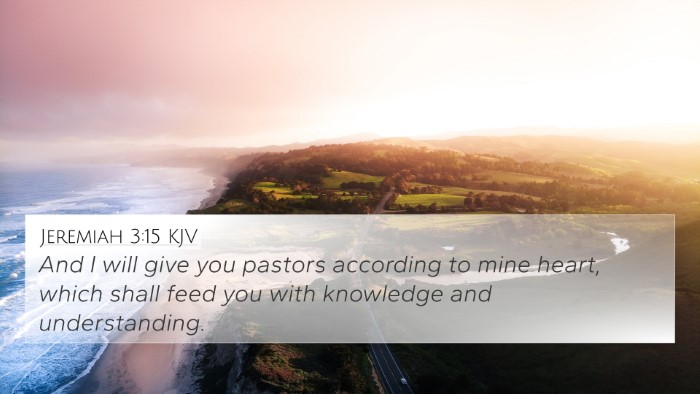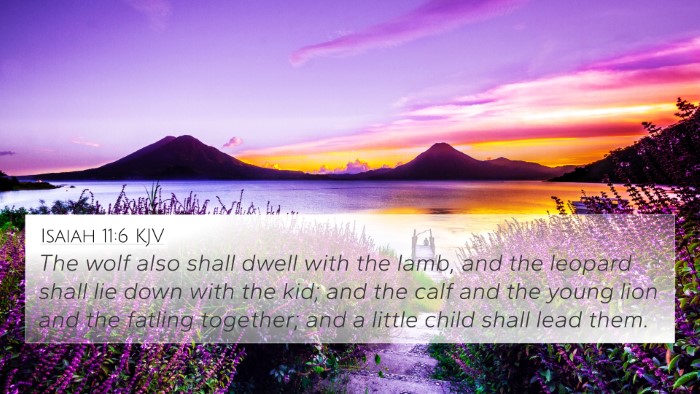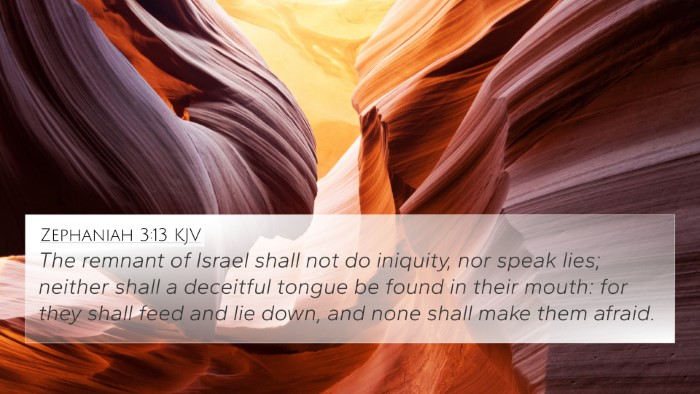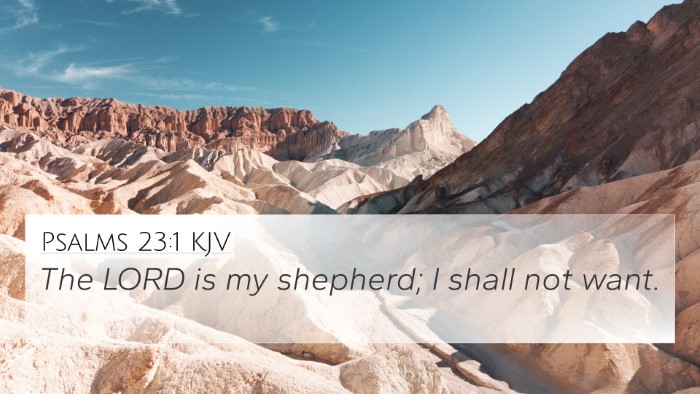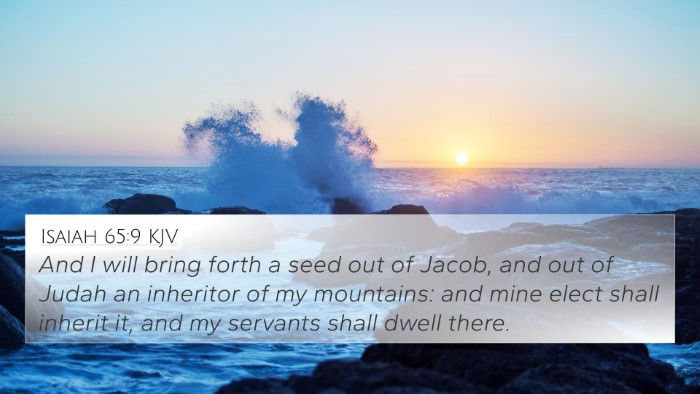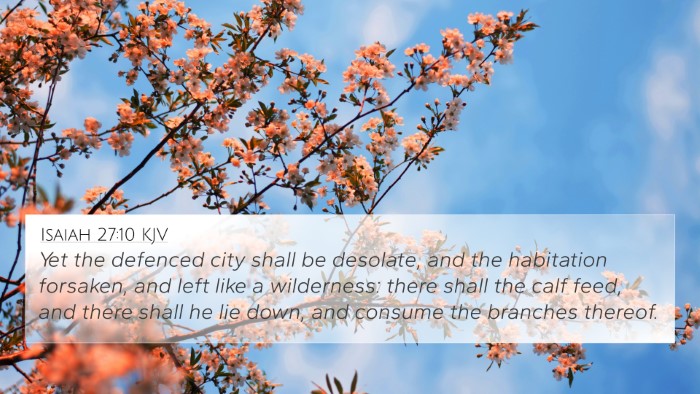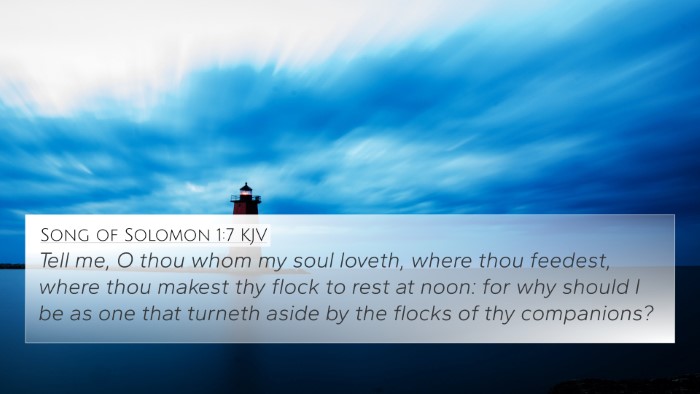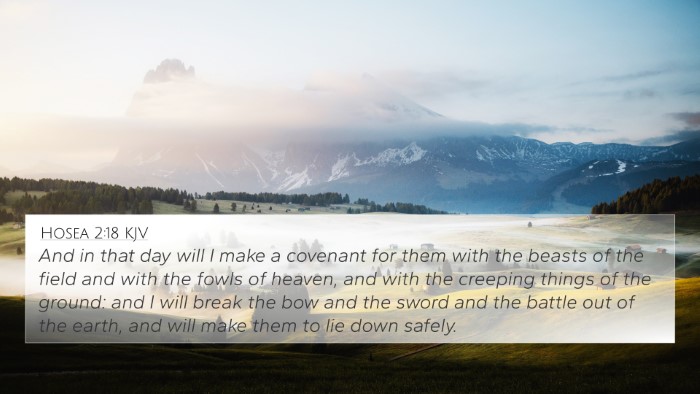Ezekiel 34:15: A Summary of Meaning and Interpretation
Ezekiel 34:15 states, "I will feed my flock, and I will cause them to lie down, saith the Lord GOD." This verse reflects the Lord's commitment to care for His people, presenting a magnificent image of divine shepherding. Through public domain commentaries, we can glean deeper insights into its meaning and contextual significance.
Understanding the Role of the Shepherd
This verse encapsulates the essence of God's character as a nurturing shepherd. Matthew Henry notes that the shepherd's role encompasses both feeding and providing peace, suggesting that God actively seeks to sustain and protect His flock.
Insights from Matthew Henry
-
God’s Provision: Henry emphasizes that the Lord assures us of spiritual nourishment, which includes guidance and protection. He provides for our needs, treating us with kindness and attention.
-
Divine Comfort: The phrase "cause them to lie down" signifies rest and comfort, a critical aspect of pastoral care, where the shepherd ensures that the sheep find safety and tranquility.
Albert Barnes' Perspective
-
Restoration of Peace: Barnes observes that this verse not only signifies nourishment but also restoration after hardship. According to Barnes, this prophetic promise indicates a forthcoming era of peace following the previous devastation of Israel.
-
Inclusivity of the Flock: Barnes stresses the inclusivity of God's flock, implying that all God's people, regardless of past failings, are invited to partake in His gracious provision.
Adam Clarke's Commentary
-
Contextual Background: Clarke positions this verse within the broader context of Ezekiel's prophetic messages, highlighting that the prior chapters deal with judgment but transition here to themes of comfort and restoration.
-
Symbolism of 'Flock': Clarke also points out the symbolic nature of the term "flock," representing both individuals and communities who experience God's attentive care.
Bible Cross-References
To enrich our understanding of Ezekiel 34:15, we can identify several relevant Bible cross-references that highlight theological themes present in this verse:
- Psalm 23:1-2: "The LORD is my shepherd; I shall not want. He maketh me to lie down in green pastures: he leadeth me beside the still waters." This passage parallels the shepherd motif and conveys God's provision and peace.
- John 10:11: "I am the good shepherd: the good shepherd giveth his life for the sheep." This New Testament verse illustrates Jesus' role as the ultimate shepherd, providing sacrificial love for His followers.
- Isaiah 40:11: "He shall feed his flock like a shepherd: he shall gather the lambs with his arm, and carry them in his bosom." Here, God's care for His people is explicitly reiterated, akin to Ezekiel's declaration.
- Hebrews 13:20: "Now the God of peace, that brought again from the dead our Lord Jesus, that great shepherd of the sheep, through the blood of the everlasting covenant." This verse connects to the themes of peace and enduring covenant between God and His people.
- Matthew 9:36: "But when he saw the multitudes, he was moved with compassion on them, because they fainted, and were scattered abroad, as sheep having no shepherd." This highlights Jesus’ compassion, echoing the theme of leadership and care seen in Ezekiel.
- 1 Peter 5:2: "Feed the flock of God which is among you, taking the oversight thereof, not by constraint, but willingly; not for filthy lucre, but of a ready mind." This passage encourages leaders to emulate God's shepherding qualities.
- Jeremiah 31:10: "Hear the word of the LORD, O ye nations, and declare it in the isles afar off, and say, He that scattered Israel will gather him, and keep him, as a shepherd doth his flock." It reinforces the assurance of God’s gathering and protective nature.
Connections Between Bible Verses
Understanding Ezekiel 34:15 within the broader biblical narrative requires observing the connections and parallels between various scriptural texts. Utilizing tools for Bible cross-referencing can illuminate the deep themes woven throughout both the Old and New Testaments.
Thematic Bible Verse Connections
The theme of God as a shepherd resonates throughout the Scriptures, establishing a pattern of divine care and guidance. The connections between Ezekiel's prophecy and the pastoral imagery in Psalms, as well as the fulfillment of that imagery in Jesus' teachings, demonstrate a comprehensive understanding of God's intent to shepherd His people both spiritually and physically.
Cross-Referencing Biblical Texts
Employing a cross-reference Bible study approach allows individuals to draw links between disparate verses, deepening their understanding of biblical themes. For example, exploring the connection between Ezekiel’s description of God’s shepherding and Jesus’ portrayal of Himself as the Good Shepherd unveils a cohesive narrative of divine care.
Tools for Bible Cross-Referencing
Various resources like a Bible concordance or a Bible cross-reference guide can enhance the study of related verses. These tools facilitate an exploration of thematic connections, as well as detailed comparative analysis of key scriptures.
How to Use Bible Cross-References
To effectively use Bible cross-references, one should begin by selecting a key verse, such as Ezekiel 34:15, and then explore related passages. This method not only deepens one's understanding of the selected verse but also reveals its significance within the overarching biblical narrative.
Conclusion
Ezekiel 34:15 serves as a profound reminder of God's promise to nurture and protect His people. It encapsulates the heart of God as a shepherd, a theme echoed throughout scripture, from the Old Testament promises to the New Testament fulfillment through Jesus Christ. By engaging with the surrounding verses and utilizing effective cross-referencing, believers can gain a comprehensive understanding of God's enduring care and provisions.
